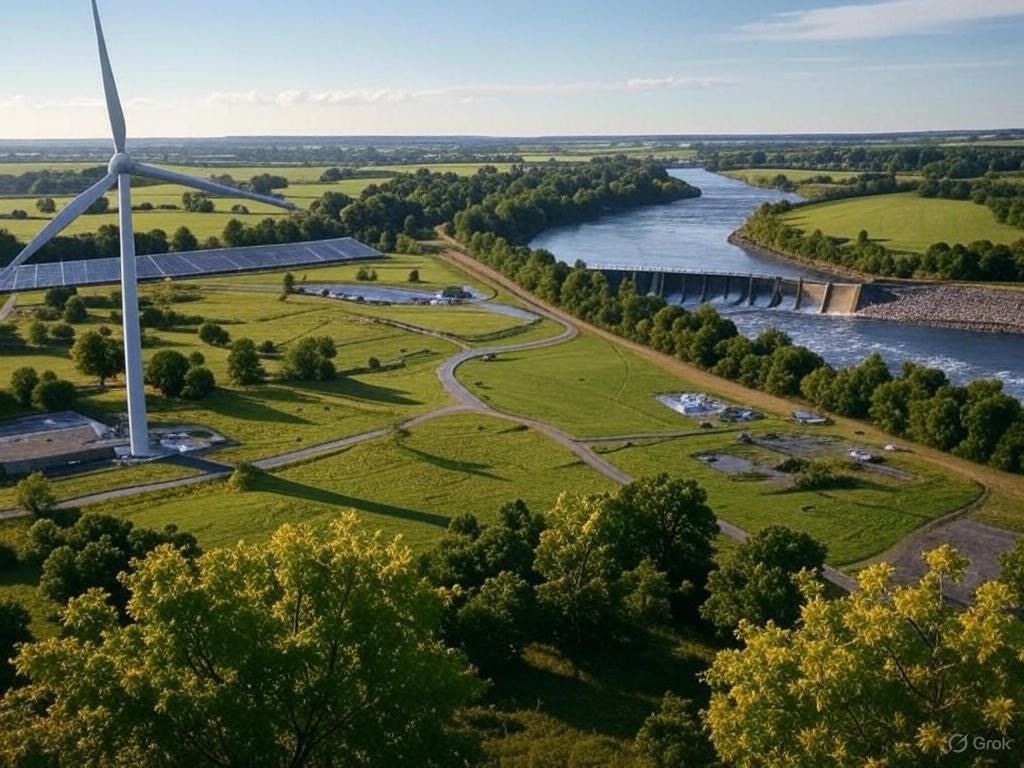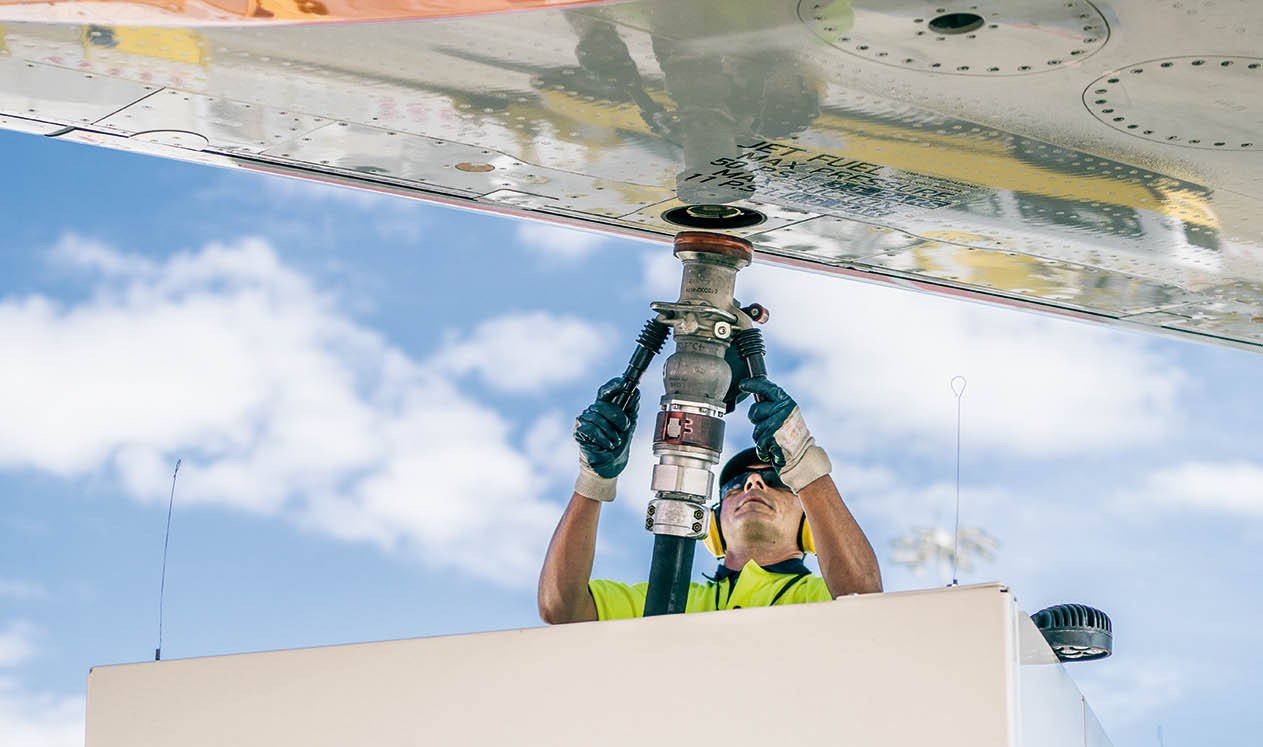The energy transition is key to addressing the challenges of climate change and effectively reducing greenhouse gas (GHG) emissions.
What does climate change consist of?
Climate change has always existed. What is concerning is the speed at which the planet's temperature is increasing due to human action. Therefore, it is one of the greatest global challenges facing our society.
Human activity (industry, transport, electricity, agriculture and livestock breeding) generates greenhouse gas (GHG) emissions into the atmosphere, which cause the Earth's temperature to rise, which generates severe and irreversible economic and environmental impacts.
Due to global warming, we are experiencing more extreme weather conditions, melting glaciers and rising sea levels. These climatic conditions affect present and future generations and, consequently, are having an increasing impact on our economies, the environment and people's health and quality of life. Therefore, we are facing a global challenge on an international scale that requires global and urgent climate change solutions.
Several countries have agreed to work jointly on coordinated solutions that will help mitigate the effects of climate change and guarantee the reduction of greenhouse gas emissions to stop the rise in global temperatures, as established in the Paris Agreement.
The global objective is to work towards a fair energy transition that guarantees the decarbonisation of the economy, reducing greenhouse gas emissions into the atmosphere to reduce the rise in global temperature.
Greenhouse gas (GHG) emissions
Greenhouse gas (GHG) emissions into the atmosphere have been increasing, due mainly to human action. And, more specifically, to the generation and consumption of energy of fossil origin.
According to the International Energy Agency, energy is the main contributing factor to climate change and represents around 70% of global greenhouse gas (GHG) emissions. Some 90% of these emissions are CO2, due to the combustion of fossil fuels and 9% are methane (CH4), due to the extraction, transformation and distribution of oil and gas.
The energy sector must play a vital role to address the major global challenge of climate change, since they account for the largest number of greenhouse gas emissions into the atmosphere, followed by industry, transport, agriculture and livestock breeding. Therefore, to achieve our climate change goals, a major transformation process must be undertaken to decarbonise the economy, i.e. find new forms of energy that generate low or zero CO2 emissions, the main greenhouse gas.
What does the energy transition consist of?
Each country, city or region is supplied with energy through its energy model. This energy mix is the combination of different primary energy sources—carbon, oil, natural gas, nuclear energy, biomass, water, solar energy and wind energy—which are used to supply the different energy needs of the population: industry, households and transport, among others.
Each energy model must guarantee universal access to energy sustainably and competitively; i.e., it must be accessible to everyone, whenever they need it, with the lowest environmental impact and a fair price. In turn, it must be capable of meeting the growing energy demand to guarantee economic development and growth in the coming years.
Each country or region has a different energy model, and several variables influence its design: proprietary energy resources (autochthonous), security of supply, energy generation capacity and environmental impact, among others. Considering these variables, each region must promote the most sustainable energy generation in economic, social and environmental terms.
At present, all energies play an important role in economic growth and the quality of people's lives, but it is necessary to change the model towards a low-carbon economy that will reduce greenhouse gas emissions to address climate change.
The energy transition is the change in the energy model that will lead us to the generation of low-carbon energy generation (decarbonisation), promoting primary energy sources with minimal generation of greenhouse gases.
This requires reducing energy generation from fossil fuels and promoting other, more sustainable energy sources.
According to their needs and resources, countries are undergoing their energy transition process, including new energy sources or improving the efficiency of the current ones. This evolution towards a new energy model must involve the lowest possible cost for society, ensuring that energy continues to be affordable for everyone and preserving the economy's competitiveness.
How can the decarbonisation challenge be addressed?
Decarbonising the economy is essential and requires the transformation of various sectors, particularly the energy sector, which is transversal to all of them, but also requires a transformation in the production and consumption mode of all economic agents, companies and citizens.
The energy sector is one of the greatest emitters of CO2, the main greenhouse gas (GHG) that contributes to global warming. The decarbonisation of the energy sector is necessary and urgent, but it must be addressed without affecting economic growth and guaranteeing universal access to energy.
The decarbonisation of the energy sector requires transformation towards a low-carbon emission generation model, promoting the inclusion of renewable energy sources that replace energy generation from fossil fuels.
Access to quality, secure energy and at affordable prices is a necessary condition for economic development and for increasing people's well-being. Thus, the major challenge is to dissociate greenhouse gas (GHG) emissions from the evolution of the economy. Moreover, we also need to change current energy consumption patterns, which will require addressing a just energy transition for everyone.
In this context, the decarbonisation of industry is essential, since industrial activities—highly dependent on energy costs—are a major economic driver and generator of quality employment.
Aware of the need to continue moving towards an environmentally sustainable European economy, a long-term strategic vision that will help us move towards a prosperous, modern, competitive and climate-neutral economy with zero carbon emissions is necessary. A strategy in which decisive strides are made in technological fields that facilitate decarbonisation, but at the same time is endowed with an enabling framework that stimulates change.
Systematic efforts shall be required to integrate climate change and the environment in all energy policies, with a regulatory framework capable of providing timely signals for investment.
The modernisation and decarbonisation of the economy of the European Union (EU) requires a considerable increase in investment in the energy system and related infrastructure and in industry, transport, and the residential sector, which are mainly responsible for greenhouse gas (GHG) emissions. Furthermore, this enabling framework must integrate the different governments of the Member States and, in a very active way, the commitment of companies and particularly of consumers.




